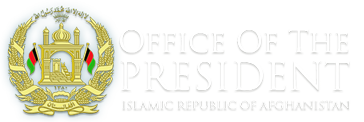
New Delhi: - Deputy Chief of Mission M. Ashraf Haidari was invited to give a talk on “Afghanistan in Transition: The Way Forward” at the Indian Council of World Affairs (ICWA) on February 25, 2014. The participants included Dr. Vijay Sakhuja, ICWA Director of Research, and a group of senior and junior doctorate research fellows. In the two-hour talk, Mr. Haidari provided the participants with an analytical overview of developments in Afghanistan since the fall of the Taliban in 2001, examining the role of various stakeholders, including regional players, in the stabilization and reconstruction of Afghanistan.
He termed Afghanistan’s 12-year achievements a “work in progress,” which he said should be sustained based on the interests, which Afghanistan shares with its key allies in the region and beyond. He cautioned against any half-hearted measures to ensure fragile stability in the country, recalling the events of the 1990s that resulted from a lack of constructive regional and international involvement in Afghanistan. In this regard, he noted the importance of regional leadership and ownership of addressing Afghanistan’s problems, most of which he said had regional and transnational roots.
Consequently, Mr. Haidari welcomed the increased interaction among India, Russia, and China on the post-2014 Afghanistan where the three countries share a common interest in ensuring long-term stability in the country. He held that when these three regional countries sincerely joined forces against the threats of terrorism and extremism, they would be able to contain and gradually eliminate the threats. In doing so, it was important for the three countries to enlist the continued support of NATO in their shared endeavor, while encouraging Pakistan to play a constructive role in helping ensure regional peace and stability.
Mr. Haidari concluded his talk by singling out Afghanistan’s number one problem: insecurity with external roots. He termed the rest of the country’s challenges as normal in the process of rebuilding and sustainable development, which the countries of “the bottom billion” share. Once the problem of insecurity was resolved through effective regional and international measures, the developmental needs of Afghanistan would overtime be addressed.






